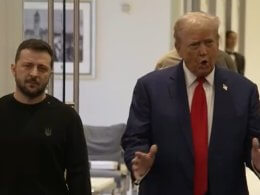Dutch government plans to drastically cut emissions of nitrogen pollution cleared a key hurdle Tuesday when the European Union’s executive arm gave the green light to farm buyout schemes worth nearly 1.5 billion euros ($1.65 billion).
The plans to reduce nitrogen deposits — mainly by livestock farms — on EU-designated areas of vulnerable nature have sparked heated debate and widespread protests by angry farmers in this small nation that is a major producer and exporter of farm products. Dutch agricultural exports were worth 122.3 billion euros last year, according to the national statistics office.
The Dutch ruling coalition wants to cut emissions of pollutants, predominantly nitrogen oxide and ammonia, by 50% nationwide by 2030. It was not immediately clear how much of that target could be met using the EU-approved funds. Some 3,000 farms are expected to be eligible.
Nitrogen pollution makes climate change worse and can harm biodiversity, according to the UN Environment Program.
A key part of the Dutch strategy involves buying up and halting work at farms responsible for large-scale emissions of nitrogen. However, that required confirmation from the European Commission that the buyouts do not amount to state aid that is banned under EU rules.
Related Story: Dutch Farmers Continue to Fight for Livelihoods Over Climate Change Policies









